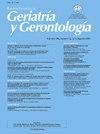Very old patients in the ICU in Latin America: A narrative review
Q3 Medicine
引用次数: 0
Abstract
The population of very elderly patients (aged 80 years and older) in intensive care units (ICUs) is steadily growing. These patients have unique physiological, cognitive, functional, and social characteristics that affect their entire ICU course. Immobility, delirium, dysphagia, malnutrition, and polypharmacy are among the most common geriatric syndromes in these patients, and they contribute to a higher risk of acute and long-term functional decline and mortality. Risk assessment in very elderly patients is complex, as traditional ICU scoring systems do not account for frailty and baseline disability, making difficult the determination of likely benefits, futility, or harm with ICU interventions. The importance of shared decision-making for treatment plans is critical, as very elderly patients and their families may have uncertain or unrealistic prognostic awareness and expectations of ICU care. Considering the gap between the rapid aging of the population and the socio-health development in Latin America, this population is an important determinant of stress on healthcare systems, however, data on these population is scarce. This review, based on a comprehensive literature search, summarizes recent evidence on triage for ICU admission, specific clinical characteristics, predictive elements of prognosis, and ICU and post-ICU outcomes for very elderly patients while also analyzing the challenges to improve management in the Latin American region.
拉丁美洲重症监护病房的高龄病人:叙述性回顾。
重症监护病房(icu)的高龄患者(80岁及以上)人数正在稳步增长。这些患者具有独特的生理、认知、功能和社会特征,影响其整个ICU病程。行动不便、谵妄、吞咽困难、营养不良和多种药物是这些患者中最常见的老年综合征,它们导致急性和长期功能下降和死亡的风险更高。高龄患者的风险评估是复杂的,因为传统的ICU评分系统不考虑虚弱和基线残疾,使得难以确定ICU干预可能的益处、徒劳或危害。共同决策治疗方案的重要性是至关重要的,因为高龄患者及其家属可能对ICU护理有不确定或不现实的预后意识和期望。考虑到拉丁美洲人口快速老龄化与社会卫生发展之间的差距,这一人口是卫生保健系统压力的重要决定因素,然而,关于这些人口的数据很少。本综述基于全面的文献检索,总结了最近关于ICU入院分诊、特定临床特征、预后预测因素、高龄患者ICU和ICU后预后的证据,同时分析了拉丁美洲地区改善管理的挑战。
本文章由计算机程序翻译,如有差异,请以英文原文为准。
求助全文
约1分钟内获得全文
求助全文
来源期刊

Revista Espanola de Geriatria y Gerontologia
Medicine-Medicine (miscellaneous)
CiteScore
1.90
自引率
0.00%
发文量
62
审稿时长
85 days
期刊介绍:
Una revista de gran prestigio por sus artículos originales de investigación y revisiones. Permite cubrir todas las áreas de la medicina pero siempre desde la atención al paciente anciano, y está presente en los más reconocidos índices internacionales.
 求助内容:
求助内容: 应助结果提醒方式:
应助结果提醒方式:


